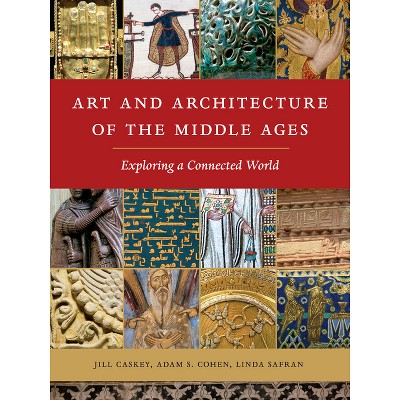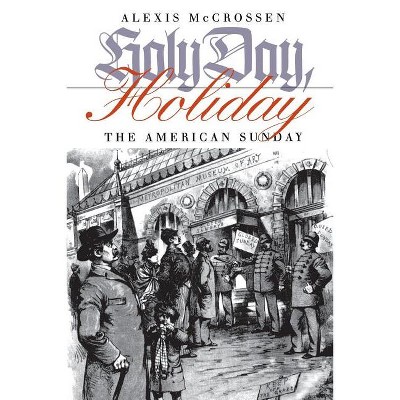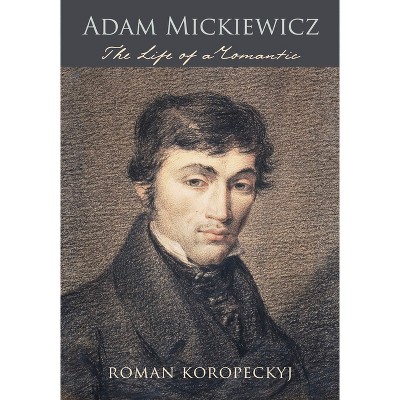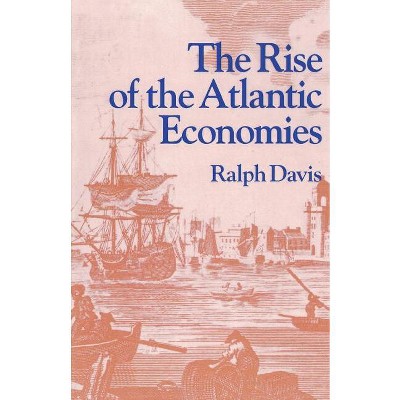Sponsored

The Holy Bureaucrat - by Adam J Davis (Hardcover)
In Stock
Sponsored
About this item
Highlights
- In a book that offers a fresh perspective on the complex relationship between thirteenth-century institutional power and evangelical devotion, Adam J. Davis explores the fascinating career of Eudes Rigaud, the Franciscan theologian at the University of Paris and archbishop of Rouen.
- About the Author: Adam J. Davis is Assistant Professor of History at Denison University.
- 288 Pages
- Biography + Autobiography, Religious
Description
About the Book
In a book that offers a fresh perspective on the complex relationship between thirteenth-century institutional power and evangelical devotion, Adam J. Davis explores the fascinating career of Eudes Rigaud.
Book Synopsis
In a book that offers a fresh perspective on the complex relationship between thirteenth-century institutional power and evangelical devotion, Adam J. Davis explores the fascinating career of Eudes Rigaud, the Franciscan theologian at the University of Paris and archbishop of Rouen. Eudes's Register, a daybook that he kept for twenty-one years, paints a vivid picture of ecclesiastical life in thirteenth-century Normandy. It records the archbishop's visits to monasteries, convents, hospitals, and country parishes, where he sought to correct a wide range of problems, from clerics who were unchaste, who gambled, and who got drunk, to monasteries that were financially mismanaged and priests who did not know how to conjugate simple Latin verbs.
Davis describes the collision between the world as it was and as Eudes Rigaud wished it to be, as well as the mechanisms that the archbishop used in trying to transform the world he found. The Holy Bureaucrat also reconstructs the multifaceted man behind the Register, reuniting Eudes Rigaud the intellectual, Franciscan preacher, church reformer, judge, financial manager, and trusted councillor to King Louis IX. The book traces the growth of a complex bureaucracy in Normandy that insisted on discipline and accountability and relied on new kinds of written administrative records. The result is an absorbing study of the interplay between religious values and practices, institutions and individuals during the age of Saint Louis.
Review Quotes
A finely conceived and wonderfully executed work of erudition. Thanks to Davis, we understand the greatness of the man, the largeness of his ecclesial and spiritual vision, the vibrancy of his reform activities.... Davis handles complex financial matters deftly. His knowledge of the fine points of pastoral structures, practices, and overlapping jurisdictions is as impressive as his explanations are clarifying.... An excellent work of scholarship by a most promising young scholar.
--Michael F. Cusato "Speculum"Davis has come as close to writing the biography of a thirteenth-century bishop as is achievable.... A very fine study, more scholarly though not less fascinating than Le Roy Ladurie's Montaillou, and deserving just as wide a readership.
--Nicholas Vincent "Biography: An Interdisciplinary Quarterly"This is a well-constructed book, judicious in its treatment of the main issues, and endorsing the contemporary opinion of those who argued that friars were needed among bishops of the Church. It is highly recommendable and should command a wide readership.
--Jane Sayers "Journal of Ecclesiastical History"About the Author
Adam J. Davis is Assistant Professor of History at Denison University.
Shipping details
Return details
Trending Non-Fiction











